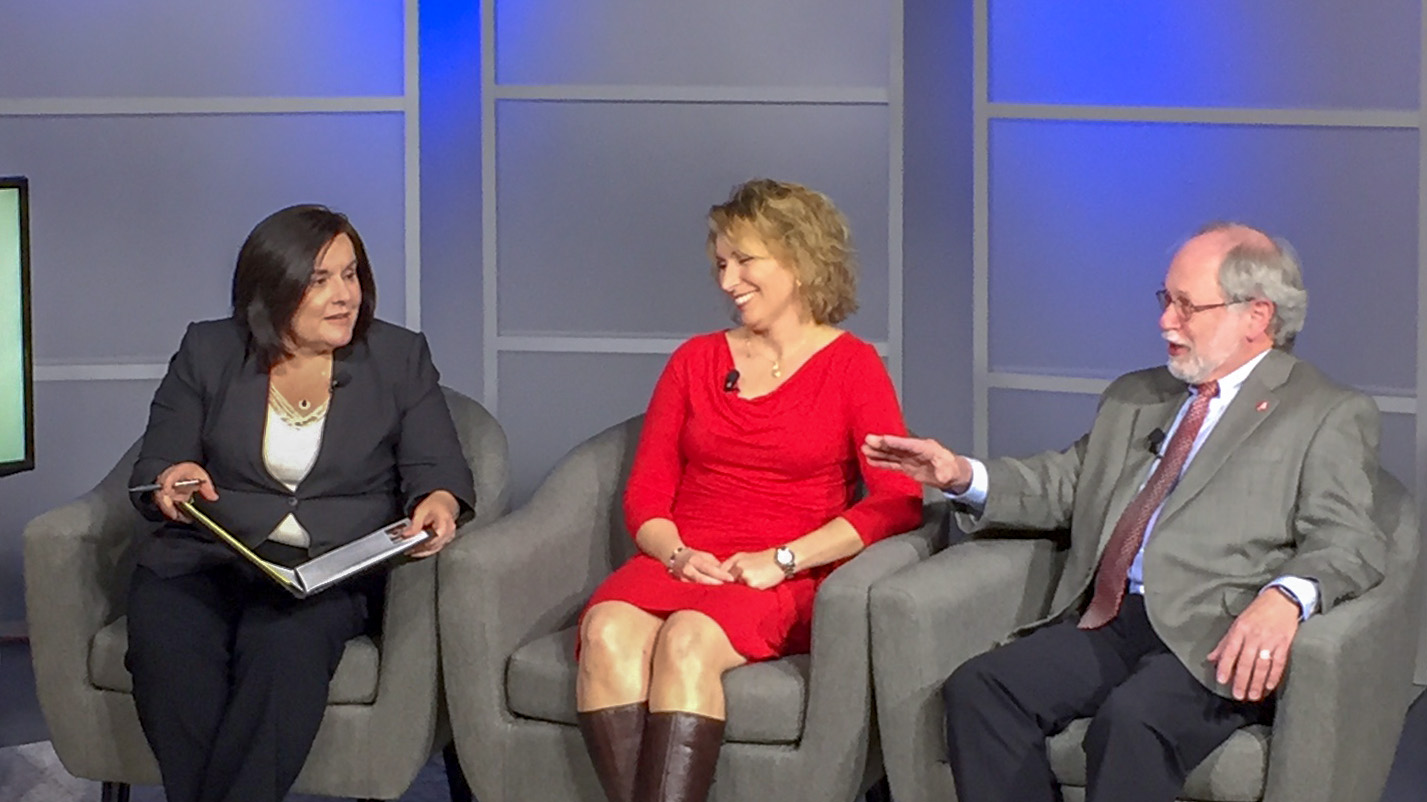Dr. Richard Streiffer, dean of the College of Community Health Sciences, recently participated in a panel discussion filmed for UA-Public Television’s “Future of Health Care” segment that will air later this year.
Other panelists included Dr. Debra Whisenant, assistant professor in the UA Capstone College of Nursing, and Dr. William Curry, associate dean for Primary Care and Rural Medicine for the University of Alabama School of Medicine. CCHS also serves as a regional campus of the School of Medicine.
Dr. Jennifer Greer, associate provost for UA, served as panel moderator. She asked panelists first about access to health care in Alabama.
“So many Alabamians don’t have health insurance or a primary care provider. They might have a doctor, but few have a primary care physician,” Streiffer said. He explained that lack of access to health care and a primary care physician – who can care for patients, help them navigate the complex healthcare system and ensure they receive timely care and screenings – can lead to illnesses and diseases being diagnosed at later stages when they are harder and more expensive to manage and cure.
Curry said that many of the health issues that lead to “incredible expense and devastation of life,” such as cardiovascular disease and diabetes, can often be prevented if people have access to care.
Streiffer said in addition to better health, there are economic costs associated with lack of access to and availability of health care. “We won’t attract business and people to areas that don’t have what they need. If you want to have, particularly a rural area, survive, you need to have education, jobs and health care.”
Curry agreed. “Health care is essential for economic development. It’s in the best interest of businesses to have a healthy workforce.”
Greer asked if more hospitals are needed. In Alabama, eight counties have no hospital at all. During the last eight years, seven rural hospitals have closed in the state, placing Alabama near the top of the list for rural hospital closures nationwide.
Streiffer said a number of hospitals in Alabama, particularly those in rural areas, are struggling financially and closing expensive labor and delivery and intensive care units. He said more hospitals might not be the solution, but perhaps a different model is needed. “Emergency and primary care and preventive services need to be accessible in communities so people can get the care they need when they need it,” he said. “So, how do we provide the right health care for communities and what the populations there need?”
Curry added that rural areas in particular need to consider new models for hospitals. “Part of it is a lack of regional planning. We need to develop different models. A rural community needs a health care system – a team of care providers, diagnostics, after-hours care and emergency care. They might not need inpatient beds. But if you lose a hospital, you lose an emergency room, laboratory and x-ray, doctors and nurse practitioners.”
Whisenant acknowledged the importance of hospital emergency rooms. “The No. 1 killer of teens is traffic accidents. Without ERs …”
Greer also asked about social determinants of health and how those have impacted health in Alabama. Social determinants of health are the structural conditions in which people are born, live and work and include factors like socioeconomic status, education, the environment, employment, social support networks and access to health care.
“There are bound to be lessons we can learn by incorporating social determinants of health,” Curry said. “We do a poor job of capturing that information, even with our electronic health records.”
“Technology does not equal better care,” Whisenant added. “A level of quality (care) can be provided without technology” and by considering social determinants of health.
Streiffer said social determinants of health need to be at the forefront of health care and health care conversations. “For population health, social contributions are the dominant factor that we don’t have a conversation about.”
